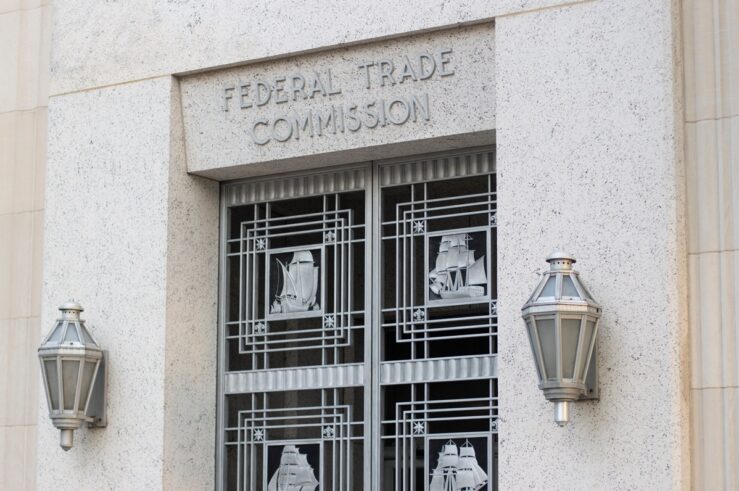This article is a part of the Unlocking the Law Symposium symposium.
Much of the writing on deregulating the legal profession asks skeptically whether it could or should happen. It was logical to wonder what could change when the profession was locked up tight by the lawyers themselves. What opposing political interest group was comparably well-organized or well-informed? Consumers could sue to break up the regulatory monopoly, but who would represent them? They could boycott lawyers, but then would have to face law’s complexity on their own. Besides, who could argue with lawyer licensing when so many other professions also had to be licensed?
Today unlocking the law is no longer political science fiction. A number of forces have created alternatives to traditional U.S. lawyers and law firms, and therefore interest groups positioned to push their way into the competitive arena.
We are not alone: Once U.S. lawyers lived in an impregnable fortress, surrounded by vast oceans, possessing the sole keys to their superior legal system and incomparable access to the world’s largest clients. Now transportation and communication developments have shrunk the world and produced global trade and corporations. The world demands global lawyers, and firms have responded by establishing global practices. U.S. lawyer regulation now must compete with the rest of the world.
The UK Legal Services Act 2007 provides a glimpse of what is to come. The Act, instigated by consumers seeking cheaper legal services, allows “alternative business structures,” including publicly traded law firms and firms combining legal advice with other services, including banking and finance.
In short, U.S. lawyers will be forced to compete with their deregulated counterparts in other lands.
Meet the new law firms. Even within the existing U.S. regulatory structure, new kinds of law firms are arising. I don’t mean just new versions of the traditional lawyer-only firm. Non-lawyer-owned firms, such as those managing legal process outsourcing, are selling a different but competitive product. Such firms are already deregulating the U.S. legal services market.
Another kind of non-lawyer-owned firm is the litigation hedge fund. As discussed in my Death of Big Law (at 801), “[h]edge funds investing in litigation are changing the traditional lawyer-client model of litigation.” Despite (or perhaps because of) prohibitions on outside-owned law firms, funding of litigation is increasingly coming from the capital markets. The hedge fund’s lawyers provide the expertise as to how to value the lawsuits, but not the capital. As discussed below, it’s not clear how long these lawyers will be human.
Non-human lawyers. As I’ve discussed repeatedly on TOTM, and in a recent article with Bruce Kobayashi, lawyers are increasingly having to compete with faster, cheaper and more accurate computers. In other words, the information revolution is finally coming to law. This of course is already happening with e-discovery, and more generally data management systems that feed into litigation. It is also happening with automated contracting (e.g., here, here and here, and discussed here). Computers can work with corporate data to provide high-tech compliance that reduces the need for litigation in the first place, or help firms make accurate litigation management decisions. Computers and the web also can help clients hire lawyers and price their services.
More interesting legal technologies are on the horizon. If computers can play Jeopardy with the champions or write news articles, why shouldn’t they be able to argue cases in briefs or in front of judges, or predict the outcomes of cases?
The key insight here is that what we call law is basically information. A judicial decision relies on information from prior judicial decisions. These decisions collectively, as well as litigation information available from Pacer and other sources, processed by powerful computers, can predict future decisions at least as accurately as computers now predict the weather. Future computer advances could leave humans far behind in what we now refer to as “legal reasoning.”
Non-human clients. A skeptic might argue that while many alternatives to traditional legal services are already available, they all run up against a stone wall of regulation which lawyers are unlikely to dismantle. Again, my point above is that these superior alternatives and technologies create their own interest groups that compete with lawyers not only in markets but in politics. But there is an even more powerful force for change: corporations.
Corporations have their own lawyers working in house. These lawyers, who are backed by extensive resources and motivated to reduce legal costs, can buy and use whatever tools will help corporations deal with the law, including powerful software and computers. In-house corporate lawyer-executives do not have the same incentives as lawyers in private practice to resist technologies that could put them out of business. And corporate users of legal services do not confront regulatory impediments to these new technologies.
The immediate future might be a world bifurcated between corporate and individual clients. This might seem to be another case of the haves coming out ahead. But how long can such an equilibrium persist? With the cost of legal services soaring and the poor and middle class increasingly denied access to legal services, how long will lawyers be able to hold their fingers in the regulatory dyke? Lawyers can’t resist change forever as long as the market produces more and cheaper and better alternatives to traditional legal services.
As discussed in my Death of Big Law, developments like those discussed above already have contributed to the demise of the traditional Big Law model. While Big Law’s empire crumbles, new businesses and business models are rising from its ashes. They are already invested in the future and have reason to fight for its deregulation.
Lawyers’ choice is simple: (1) try to block change, refuse to engage in the debate, and increase the likelihood and extent of their future obsolescence; or (2) meet the competition head on and demonstrate how they can continue to add value in the new age of legal information (more on that in my next post).




